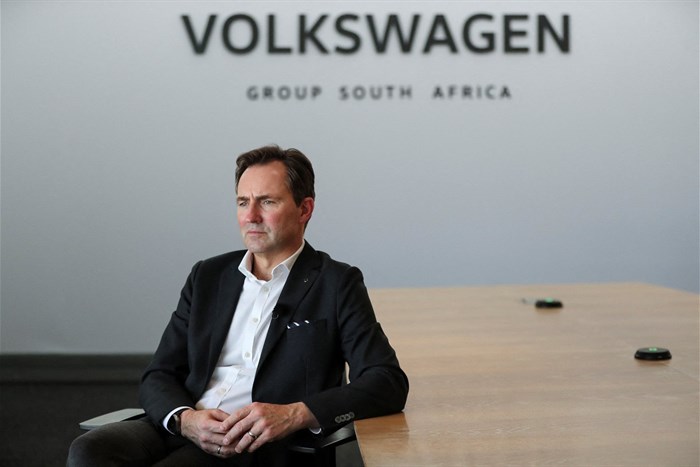
The company's VW passenger car brand is in the midst of defining the key measures of a global scheme to boost its flagging margin - the first of a series of savings drives aimed at improving group profitability and staying competitive in the transition to electric cars.
The German automaker has been in South Africa for nearly 80 years. Factors like competitive labour costs once placed it among the company's higher-ranking bases globally, VW brand chief Thomas Schaefer said during a visit to the country.
But the costs of mitigating power outages caused by chronic production shortfalls at state-owned utility Eskom as well as rising labour costs and logjams on railways and at ports have eroded that advantage, he said.
"Eventually you have to say, why are we building cars in a less competitive factory somewhere far away from the real market where the consumption is?" Schaefer said. "I'm very worried about it ... We're not in the business of charity."
He said the company's team in South Africa had done what it could to overcome what he called an "uphill battle" but that ultimately the South African government needed to step up to solve the problems.
Volkswagen produced some 132,200 Polo and Vivo models at its South African facility in Uitenhage last year, most of them for export.
Those export markets now risk disappearing, however, as wealthy countries move to electric vehicles (EVs).
The European Union and Britain are planning to ban sales of new internal combustion vehicles from 2035.
Schaefer said there were no current plans to introduce EV manufacturing in South Africa, since electric cars are currently priced out of the reach of most domestic consumers. Producing them for export would not be environmentally sustainable, he said.
With the proper government policies aimed at leveraging the country's proximity to critical minerals like lithium and cobalt, however, it could become a battery manufacturing hub, he said.
"There's a realistic chance that South Africa, with enough focus, with all the raw materials in the neighbourhood, they could be a champion," Schaefer said.

Reuters, the news and media division of Thomson Reuters, is the world's largest multimedia news provider, reaching billions of people worldwide every day.
Go to: https://www.reuters.com/